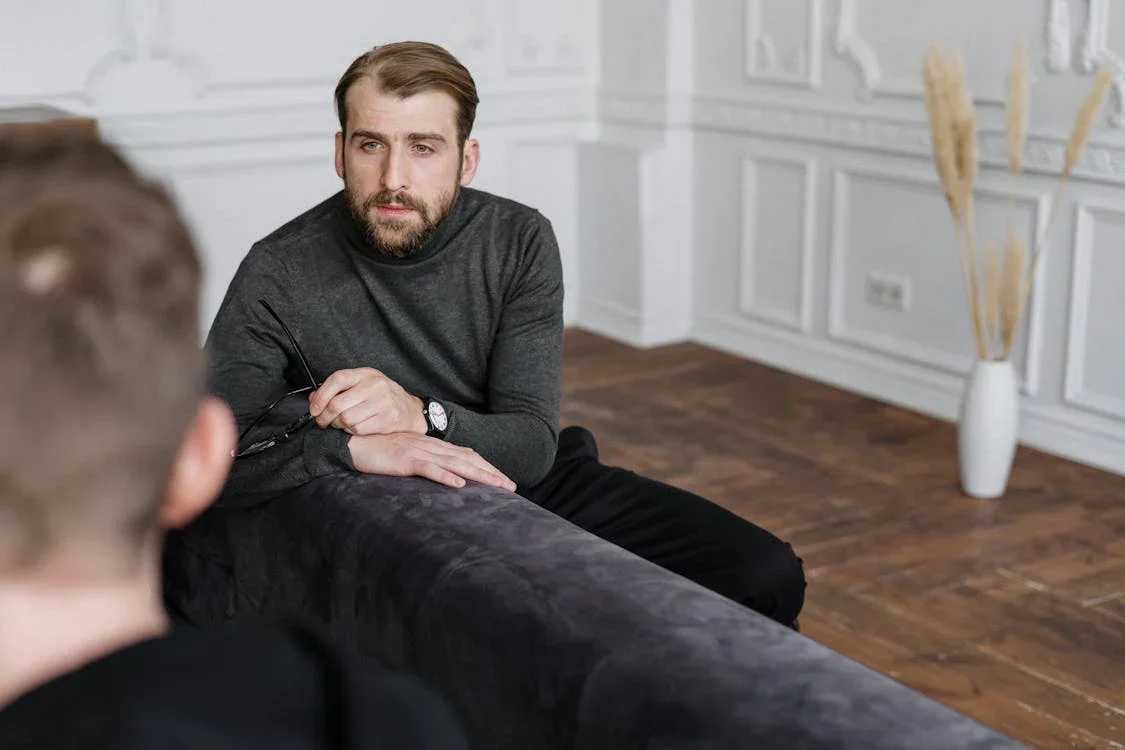Understanding Anxiety, Stress, and the Need for Counselling
Takeaway: Seeking out an anxiety therapist allows you to access specialized support from a trained professional who understands the complexities of anxiety, offering personalized interventions and guidance to help you navigate your symptoms and build coping strategies.
Understanding Anxiety, Stress, and the Need for Counselling
Our body's natural alarm system produces the complex reactions of anxiety and stress to indicate potential danger or challenges, whether real or imagined. Fear, anxiety, and worry play integral roles in this process, influencing our physical and emotional well-being. As therapists, we recognize the profound impact these experiences can have on individuals' lives, prompting the critical need for effective interventions and support.
Unravelling the Complexity of Anxiety and Stress
When faced with difficulties or threats, the nervous system's physical response to stress arises, setting off a series of physiological reactions. Fear, on the other hand, represents a comprehensive emotional response characterized by a sense of impending doom or apprehension, particularly when confronted with an immediate threat. Anxiety encompasses both the physical stress response and the accompanying emotional turmoil, serving as a warning system and alerting us to potential dangers or challenges.
Worry, often considered the cognitive component of anxiety, involves repetitive and circular thinking patterns that can either facilitate problem-solving or lead to perseveration. These intricate interplays between physical sensations, emotions, and cognitive processes underscore the complexity of anxiety and stress and highlight the importance of tailored interventions to address these challenges effectively.
Is a counsellor good for anxiety?
Many individuals wonder whether seeking the guidance of a counsellor is beneficial for managing anxiety. The answer is a resounding yes. Counsellors are trained professionals equipped with the skills and expertise to provide evidence-based interventions tailored to each individual's unique needs. Here's why turning to a counsellor can be immensely helpful in addressing anxiety:
Specialized Support: Counsellors specialize in addressing mental health concerns, including anxiety, and possess a deep understanding of the complexities surrounding this condition. They create a safe and supportive environment for clients to explore their fears and challenges, offering empathy, validation, and practical guidance along the way.
Evidence-Based Interventions: Counsellors employ evidence-based therapeutic modalities, such as cognitive behavioural therapy (CBT), mindfulness-based approaches, and exposure therapy, that have been scientifically proven to effectively reduce anxiety symptoms. Through these interventions, clients learn valuable skills for managing their anxiety and regaining control over their lives.
Personalized Treatment Plans: Counsellors work collaboratively with clients to develop personalized treatment plans tailored to their unique needs and preferences. They take into account factors such as the severity of anxiety symptoms, past experiences, and individual strengths and challenges, ensuring that the treatment approach aligns with the client's goals and values.
Emotional Support and Validation: Dealing with anxiety can be overwhelming and isolating, but counsellors provide a compassionate and non-judgmental space for individuals to express their concerns and emotions freely. Through active listening and empathic understanding, counsellors validate clients' experiences and offer support and encouragement throughout the therapeutic process.
Empowerment and Resilience: Ultimately, counselling empowers individuals to take charge of their mental health and cultivate resilience in the face of anxiety. By learning practical coping strategies, challenging negative thought patterns, and building self-awareness and self-compassion, clients develop the tools they need to navigate anxiety with confidence and resilience.
In conclusion, seeking the guidance of a counsellor is an invaluable resource for individuals struggling with anxiety. Counsellors offer specialized support, evidence-based interventions, and personalized treatment plans to help clients effectively manage their symptoms and reclaim control over their lives. With the right support and guidance, individuals can embark on a journey of healing, growth, and resilience, ultimately leading to a life free from the grip of anxiety.
Exploring Effective Counselling Modalities for Anxiety and Stress
In our therapeutic practice, we employ a holistic approach to address the multifaceted nature of anxiety and stress. Cognitive behavioural therapy (CBT), a cornerstone modality, offers practical tools for identifying and challenging maladaptive thought patterns contributing to anxiety and stress. Through structured exercises and cognitive restructuring techniques, clients learn to manage their symptoms and develop adaptive coping strategies.
Mindfulness-based therapies, such as Mindfulness-Based Stress Reduction (MBSR) and Acceptance and Commitment Therapy (ACT), provide valuable tools for cultivating present-moment awareness and reducing the impact of stress and anxiety on one's well-being. By fostering a non-judgmental attitude towards their experiences, clients learn to navigate stressors with greater resilience and equanimity.
Exposure therapy, an evidence-based approach, involves gradually confronting anxiety-provoking situations in a supportive environment, helping individuals desensitize themselves to triggers and regain a sense of control. Additionally, incorporating relaxation techniques and stress management strategies further enhances clients' ability to cope effectively with stress and anxiety.
5 Key Tips for Managing Your Anxiety
Practice Deep Breathing: Engage in deep breathing exercises to activate the body's relaxation response and reduce physiological arousal. For example, try the 4-7-8 breathing technique: inhale for a count of 4, hold for a count of 7, and exhale for a count of 8.
Challenge Negative Thoughts: Use cognitive restructuring techniques to challenge and reframe negative thought patterns contributing to anxiety. For instance, question the validity of catastrophic thoughts by asking yourself for evidence supporting or refuting them.
Engage in Regular Physical Activity: Incorporate regular exercise into your routine to reduce stress and anxiety levels. Whether it's going for a walk, practicing yoga, or hitting the gym, physical activity releases endorphins and promotes a sense of well-being.
Practice Mindfulness Meditation: Dedicate time each day to mindfulness meditation to cultivate present-moment awareness and develop a non-reactive stance towards anxious thoughts and sensations. Use guided meditation apps or attend mindfulness-based classes to get started.
Establish Healthy Sleep Habits: Prioritize adequate sleep by creating a relaxing bedtime routine and maintaining a consistent sleep schedule. Avoid caffeine and electronic devices before bedtime, and create a comfortable sleep environment conducive to restorative sleep.
Embracing Healing and Resilience
If you find yourself overwhelmed by anxiety and stress, know that you're not alone and that support is available. By reaching out to a qualified counsellor and incorporating practical strategies for managing anxiety into your daily life, you can reclaim control over your mental health and cultivate a life filled with peace and resilience. Remember, anxiety and stress don't have to define you, and with the right support and guidance, you can thrive and flourish in all aspects of your life.



